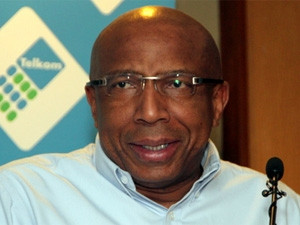
Telkom CEO Sipho Maseko has publically questioned MTN and Vodacom's resistance to mobile termination rate (MTR) changes in an open letter published today.
Maseko addressed the letter to his counterparts at MTN and Vodacom - Zunaid Bulbulia and Shameel Joosub - saying the operators' opposition to new MTRs is "standing in the way of SA's future".
The full letter reads as follows:
Dear Messrs Bulbulia and Joosub,
For many years we've been working to provide South Africans with a modern communications infrastructure. Today, we stand at a crossroads - you can hide behind regulations to protect profits, or we can all continue to expand access and lower costs.
We have been following your public statements very closely, and believe your recent actions fall short of what we can do to move the country forward. Here are some facts:
1. In 1994, mobile termination rates were introduced as a way for Telkom to subsidise MTN and Vodacom to build your networks. To achieve this, Telkom had to pay MTN and Vodacom significantly more than you paid us for the same service.
2. The extent of the Telkom subsidy to MTN and Vodacom has amounted to over R50 billion, which results from the disparity between the high cost of mobile termination rates that we pay you and the low rate that you pay for the same service on our fixed-line network. You claim you will be supporting smaller players, but in reality Telkom has subsidised your business for over two decades.
3. Despite your recent claims, history has shown that lowering the mobile termination rates has not stopped your capital investment, nor your return to shareholders. In fact, in 2012 Vodacom shareholders were paid R12 billion in dividends, while MTN paid almost R15 billion to their shareholders.
4. Lower mobile termination rates create a more equitable playing field and - more importantly - increase access to the modern economy through expanded communications for all South Africans. With Vodacom and MTN standing in the way of lowering mobile termination rates, I believe you are standing in the way of SA's future.
Are your actions in the best interest of the country?
Yours faithfully,
Sipho Maseko
PS: As leaders in SA, we can advance a level playing field for all telecommunication companies in South Africa.
Share